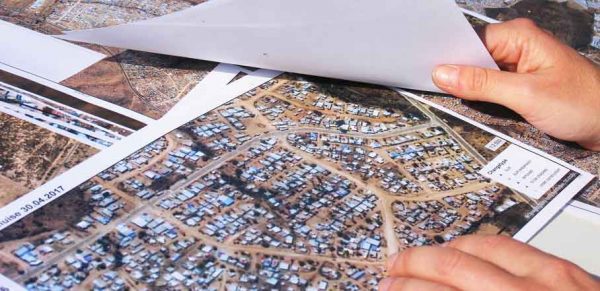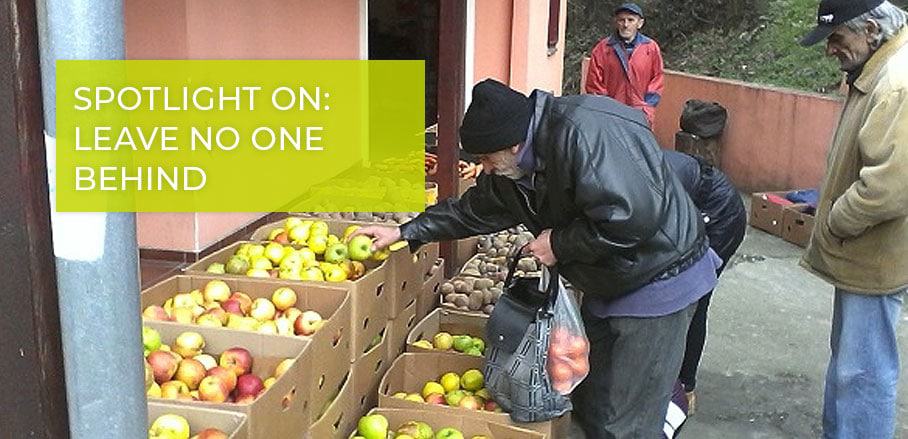Why Cities Matter: Integrated Implementation of the 2030 Agenda
As international actors gather for the 2019 High Level Political Forum, cities have to be understood to be key players in the implementation of the 2030 Agenda, writes Lennard Kehl, advisor in the GIZ Sector Project “Integrated Implementation of the 2030 Agenda in Cities and City-Regions”.
Cities Matter
Cities play a key role in implementing the 2030 Agenda. They are home to more than half of the world population, situated predominantly in the most fertilised environments, consume large amounts of resources and produce tremendous amounts of waste and emissions, while offering great potentials for economic activities as well as political and social interactions and services. It becomes evident how many human interactions take place in cities and which crucial role urbanisation plays for sustainable development across the globe.
However, the 2030 Agenda is not just a collection of 17 development goals. What makes it unique is the interconnectivity of these goals. Furthermore, the implementation principles of the agenda give guidance on how to shape transformation in a sustainable manner. Based on the 2030 Agenda, the Deutsche Gesellschaft für Internationale Zusammenarbeit und Entwicklung (GIZ) GmbH interprets these principles as
- ‘Shared responsibility’: Integrating various perspectives, knowledge, and capacities from different experts and citizens harmonises strategic urban sectors and services. It enables co-production and co-benefits among sectors, spaces, stakeholders and levels of governments.
- ‘Accountability’: Transparent city authorities are more trustworthy which leads to a higher acceptance among the population and adoption of urban development measures as well as participation in planning activities.
- ‘Integrated approach’: the 17 goals are indivisible and integrated – hence inter-sectoral cooperation and Nexus approaches are fostered.
- ‘Universality’: The agenda is applicable to all countries. Development in one region can lead to negative effects or trade-off in another. On the other hand, successful new and innovative approaches are worthy to be mainstreamed in other cities and environments. Therefore, international city cooperation and peer-exchange are rewarding approaches for mutual learning and knowledge transfer.
- ‘Leave no one behind’: For a successful implementation of the Agenda 2030 in cities and city-regions, a particular focus needs to be set on disadvantaged population groups – whether these are people with disabilities or poor people in precarious living conditions. Special needs of these people need to be considered to develop integrated solutions for all.
Integrated urban development approaches break down barriers between sectors and stakeholders, and between the institutions and levels of government involved in their conception and implementation (find further information and supporting documents of the German Development Cooperation here).
Thereby, they align with the 2030 Agenda for sustainable and inclusive transformation.
New and Innovative Approaches: Four Examples
In this regard, GIZ launched the “Cities Challenge: 2030 Agenda meets Urban Climate Action” on behalf of the Federal Ministry for Economic Cooperation and Development (BMZ) to promote model measures on integrated, climate-sensitive urban development for localising the 2030 Agenda.
Projects of the German Development Cooperation from 19 countries together with their partners were asked to propose new and innovative approaches to climate-related local challenges. In a cross-sectoral selection process, four model projects have been awarded with up to EUR 100,000 each. In the upcoming 12 months, these projects will implement the following:
In Portoviejo, Ecuador, the project plans to enhance local resilience and simultaneously improve the quality of public spaces by empowering female leaders of the community as “Guardians of the hill”, who will be part of implementing climate adaptation measures and establishing an early warning system for landslides.

© GIZ Ecuador
In Amman, Jordan, the project aims at improving quality of life in dense, disadvantaged urban areas by creating small, intense-grown pieces of woodland that restore urban ecosystems and increase native biodiversity, while retaining water run-off, stabilising soil, regulating air temperature, decreasing noise levels, and increasing carbon sequestration.

© GIZ Jordan
In Windhoek, Namibia, the project aspires to establish participatory and climate-sensitive planning processes for the resilient development of informal settlements, while implementing concrete demonstration measures in public areas, and raising climate risks awareness.

© GIZ Namibia
In Belgrade, Serbia, the project aims at establishing a voluntary redistribution scheme for urban food waste through a digital monitoring system, which will improve operations of small and medium enterprises along selected value chains and improve food security of the urban poor, especially women as family providers.
The results of implementation will be analysed and transferred to new approaches on integrated urban development for localising the 2030 Agenda for the German Development Cooperation.
To find new, sustainable solutions for how global urbanisation is shaped and governed is one of our major challenges. Sustainable cities are our future. It depends on cities now – cities matter!
To learn more about the opportunities of an integrated approach for the successful implementation of the 2030 Agenda in cities and city-regions, watch this short explainer video by the German Development Cooperation:

